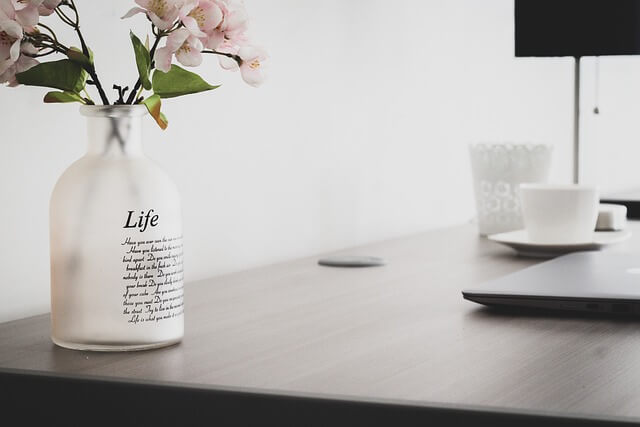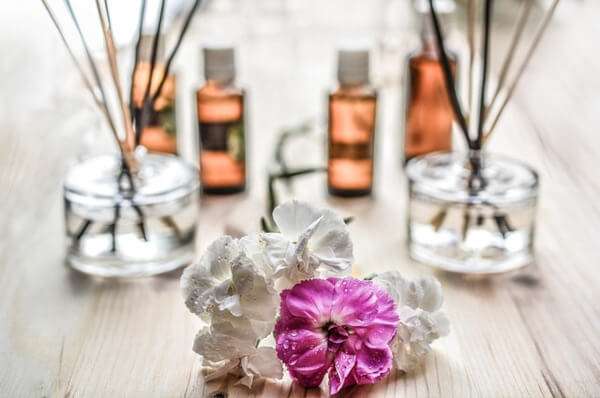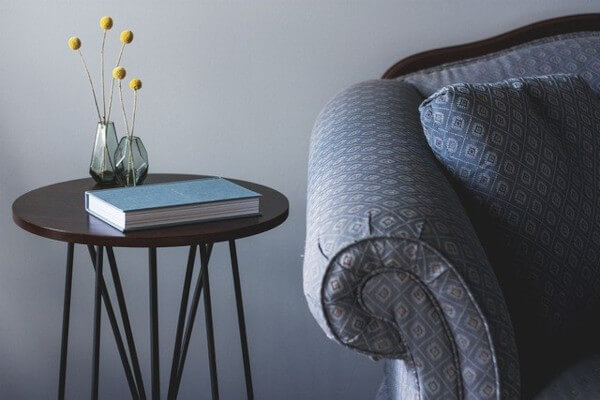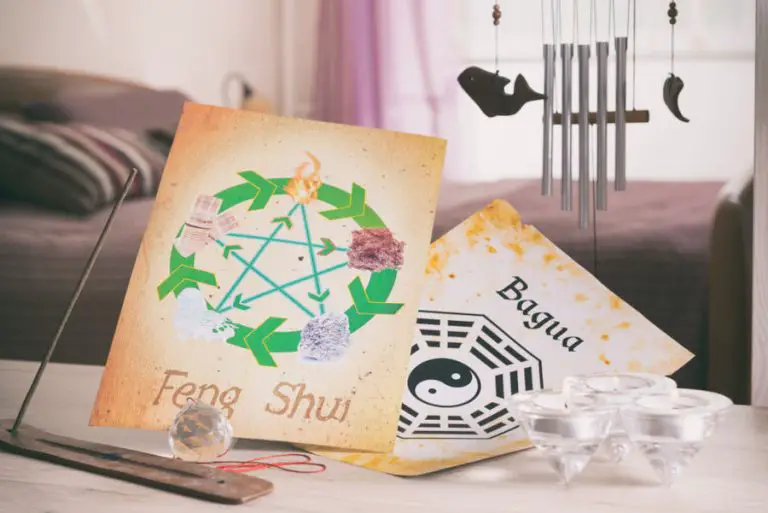Many of us, particularly in Western society, believe that stress is unavoidable. In a time when people are stressed out, have hard jobs, are constantly bombarded by social media, and can’t get away from being connected to the rest of the world, you really need your own oasis where you can get away.
Although we often have little control over the circumstances that lead to our stress, we do have control over our homes. Because our homes are a natural extension of our lives, they should be places where we can relax and recharge.
Going back to the ancient technique of Feng Shui is a great way to make your house a place where your mind and spirit can rest and rejuvenate.
Feng shui for stress relief works on two levels. First and foremost, a feng shui house will assist you in relaxing, which is the primary remedy for stress. Second, and this may not be as well known, putting feng shui concepts into your home makes you feel like you’re in charge of your environment, which is another great way to relieve stress.
Small modifications in your house may have a big impact. They are basic, straightforward, and efficient. They are simple to perform. Feng shui may improve our energy levels, sleep patterns, and overall mental and physical well-being. The main idea is that the way things are set up around us can have big effects on our lives.
If the notion of turning your house into a stress-free sanctuary appeals to you, the following advice will provide a foundation for making that dream a reality.
Clear Your Home of Clutter
One of the most important parts of feng shui is making a home that promotes balance and harmony by letting energy flow through it.
When there are too many things in a space, our minds can get cluttered and we may feel like we have too much to do. Your subconscious notices when things are piled up around you, when closets and drawers are full, or when you have projects you’ve been “meaning to get around to.” This alerts your body, increasing stress and cortisol levels.
Clearing out or organizing the space will help you feel less stressed and increase the flow of good energy. However, removing clutter is sometimes the most difficult feng shui suggestion. Choosing where to begin might be the most difficult step of all.
If you’re not sure where to start, two common approaches may be worth considering. One approach is to pick small, manageable sections and handle them one at a time until you have finished the entire home. Alternatively, try categorizing by item (clothes, toys, etc.) and immediately take a holistic approach.
The key to organizing and decluttering is to discover a method that works for you. Even the “best” system won’t help you if it doesn’t fit your needs and preferences.
Starting off is challenging, but if you put in even a small amount of effort, you’ll soon feel a huge weight lifted off your shoulders. And this is how you might start to treat stress holistically. Don’t underestimate the impact that cleaning out your home may have on you.
Also, look around for different ways to store things and different kinds of containers that will work for your needs, shape, and space. Check out everything from in-closet storage systems to creative ways to store things on a bookshelf.
It would be ideal if all members of the household agreed on where items should be stored and were conscientious about maintaining order. That is also what will assist keep stress under control.
Want to learn more about Feng Shui? Take a look at these Courses and Books – Aff.link
Create a Relaxing Bedroom Sanctuary
According to feng shui, your bedroom is your sanctuary. It is a place to rejuvenate and relax. If you don’t get enough sleep, your body won’t be able to heal itself. Therefore, your entire bedroom, from ceiling to floor, should be conducive to relaxation.
Here are some feng shui techniques for de-stressing your bedroom:
- Place your bed against a solid wall, with your head to the north and not in line with the main door.
- Remove all stuff from below the bed. If that’s not possible, organize everything as best you can under there.
- Avoid having your bed directly beneath a window, since this might disrupt your sleep.
- Checking to see if it’s time for a replacement mattress set is also a smart idea, as your current one might be older than you think and be preventing you from having quality sleep.
- Take care to keep as many items as possible in pairs as you move across the room, including photographs, nightstands, and cushions. This is said to provide harmony and balance to a couple’s relationship.
- Large mirrors should be avoided in the bedroom. According to feng shui, large mirrors create too much energy and make it hard to get a good night’s sleep.
- Remove any workout equipment or workspace from your bedroom. The idea is to generate yin (soft, relaxing) energy rather than yang (active) energy.
- Keep phones, laptops, and other electronic devices out of the bedroom. Using blue light-emitting electronics right before bed might keep you from getting a good night’s sleep. Research published in December 2018 in the Journal of Biomedical Physics and Engineering discovered that the blue light emitted by smartphone screens disrupts the circadian rhythm and lowers melatonin levels. Another study, published in the Iranian Journal of Basic Medical Sciences in February 2018, connected nighttime exposure to blue light to an increased risk of developing breast and prostate cancer.
- When you sleep, open a window and close all bedroom doors, as well as the closet doors.
- Decorate with colors that make you feel good. If your room is full of bright colors and you have trouble sleeping, it may be because the colors have too much energy. If you have high ceilings or a large bedroom, you might want to paint it a darker color.
Following these guidelines will ensure that you have a strong, secure, and balanced foundation to build upon each day. But you don’t have to make all the changes at once.
Related reading: How to Use Yin and Yang Philosophy for a Balanced and Harmonious Life – Opens in new tab
Take Care of your Bathroom
Bathrooms represent energy draining. They also tend to hold on to dirt, grime, and bacteria, all of which make energy stand still. You can protect yourself against this by making your bathroom a relaxing oasis.
Start by giving it a thorough cleaning, opening any windows you may have, and setting up any calming accessories you may have, such as a plant or an aromatherapy diffuser.
To reduce the amount of energy drained from the rest of the house, keep the toilet lid down and the bathroom door closed. This will keep the positive Chi (life force energy) flowing and provide a boost of vitality to everyone in your home.

Bring Nature Indoors
The primary idea of feng shui is to bring nature within. In fact, the words Feng and Shui mean wind and water, respectively. So, feng shui tries to bring the relaxing feeling of nature inside, and having plants is one of the best ways to do this. You may also employ water features and artwork portraying nature. Use only fresh flowers and make sure they stay healthy because flowers and plants that are wilting are a sign of anxiety.
According to a NASA scientist’s study, houseplants clean the air by eliminating indoor volatile organic chemicals. Houseplants can lower the levels of chemicals such as formaldehyde, trichloroethylene, and mercury. Plants have also been shown to reduce physiological stress, improve attention span, and make people feel better in general.
Make sure the plant you choose for feng shui is related to the intention behind it. Even better, consider a plant that supports both your feng shui purpose and air purification.
Use Artwork
Art can be used in many different ways to help with good feng shui. If a piece of art makes you feel good, add it to your feng shui-friendly decor. Remember that everything you place in your area should make you happy.
You are strongly advised to put images or paintings of nature in your house that allow you to gaze into the distance. Paintings with horizons or layers will help you relax. It also softens the room.
Make Use of Natural Light
Lighting is an important aspect of Feng Shui. Natural light has proven health advantages, including reducing seasonal sadness and improving sleep. Aside from its health and mood-boosting properties, light is an important element of good feng shui since it is considered an energy source. Since chi, or the flow of energy, is what feng shui is all about, the more natural light you have, the better.
Related reading: Mastering Feng Shui Maintenance: Your Guide to Harmonious Living – Opens in new tab
Using the Right Color
Colors in Feng Shui reflect many emotions. The use of color in the house might aid in the process of relaxation. You may either paint your walls or if that seems intimidating, place items that reflect colors back at you. Choose your room colors carefully according to Feng Shui principles to create the vibe you want in your house.
- Purple symbolizes spiritual awareness.
- Green is perfect for your living area since it renews and balances.
- Blue is utilized to create a calm and relaxing environment.
- Red increases energy.
- Bedroom colors should be equivalent to human skin tones, which range from off-white to chocolate brown.
Get Rid of Emotionally Charged Objects
When you have emotionally charged things in your home, they give off bad energy that can make you feel stressed or overwhelmed. This includes the present you didn’t like but feel horrible throwing away or giving away. Emotions can also be triggered by things like unfinished tasks, objects from the past, and the things of others. Read also: Common Things you Should NOT Keep at Home According to Feng Shui
Use Aromatherapy
Feng shui and aromatherapy are commonly practiced together because they complement one another so well. You may quickly improve your mood or lift yourself out of a negative one by using aromatherapy.
It’s important to choose the right scent for the right room. Certain scents inspire serenity and tranquillity, while others boost energy and get you pumped up for the activities ahead. As an example,
- Citrus, mint, and juniper fragrances are effective motivators.
- Lavender, peppermint, ylang-ylang, lemon, and rose are all relaxing scents.
- Orange, jasmine, or geranium might make you feel happier.

Smudging
Smudging the home is a great way to cleanse the atmosphere and bring back peace of mind if you or a member of your family has been feeling overwhelmed by stress. Emotions have frequencies, and those vibrations can get imprinted in your home’s aura.
Smudging can help you remove unwanted energy and restore balance in your house and body. Learn how to smudge by clicking here.
Improve Your Feng Shui Health Area
The health area, which influences every other area nearby, is the very center of your house.
You and your family may become more resilient and respond to stress in a better way by strengthening this area.
You can make this area stronger by putting in plants, which stand for growth and stability.
You could also add a fountain or something else with water since water shows fluidity and the ability to move around and over obstacles.
Both might be beneficial when you are ready to eliminate stress from your life.
🍀 Our “Feng Shui Master” app is your trusted companion, offering a useful guide to implementing Feng Shui principles. Try it now!
Organize Your Furniture
Part of Feng Shui is how you arrange your furniture and other things around you. Even what you put on your walls may have a major impact on your efficiency, relaxation, and sense of security.
- Take down any overhanging shelves or things. According to Feng Shui principles, overhead objects such as beams, shelves, pots and pans, and fans are like a cloud hanging over your head. You may relieve some “weight” from your shoulders by getting rid of these things.
- Get rid of as many sharp things and corners as you can. Sharp items and corners symbolize harshness and might block your efforts to relieve stress.
- Arrange your furnishings in such a way that everyone can see the entryway. This will generate a sense of calm. Not seeing the entryway raises concerns about who may be “sneaking” into the room.
- Allow a few inches of space between your sofa and the wall to allow for energy flow, and avoid putting it under windows, big beams, or heavy frames.

Keep Your Home And Work Life Separate
You should feel completely different at home than you do at work. In feng shui, it’s vital to separate your working space from your living space, as the two have quite different energy flows.
Your home energy is more yin—much more peaceful; this is where you want to rest and let go of the things you do throughout the day, whereas the office is much more yang—a lot of activity; you have your computers, appointments, and many other things that need your energy.
If you work from home, it’s important to have a space that is dedicated to business and another that is dedicated to rest and pleasure. If you want to learn more about the uses of Feng shui in the workspace, check out this article.
Related reading: Feng Shui Tips and Rituals to Energize Your New Home – Opens in new tab
Balance the Elements
Every room should incorporate the five elements of wood, water, metal, earth, and fire. A room will feel unstable if an element is either excessive or deficient. So, it is very important to find a balance between these elements.
You can easily add these elements to your home.
- Wood: This element represents vitality and progress. Decorate with wood furniture, plants, and the color green.
- Metal: This element represents reasoning and intellect. You can use metal accents like furniture legs, frames, or sculptures to bring in this element. In your color scheme, use grays, pastels, and whites.
- Earth: This element represents stability and harmony. Think about using rocks, crystals, or pictures of landscapes. The best colors to use here are orange, yellow, and other earth tones.
- Water: This element represents wisdom and peace. Mirrors, fountains, aquariums, and reflecting surfaces are excellent ways to include this element in your home decor. Make use of blue and black in your décor.
- Fire: This element represents passion and vigor. You can use red accents and candles to bring this element into your room.
Allow Fresh Air
A flow of fresh air is the single most effective way to release the energy that has been stuck in your home. Even when it’s cold outside, open the windows often to let fresh air flow through your home.

Do it with Intention
In Feng Shui, your intention plays a significant role. Every principle is a “cure” for energy that is blocked. If you use all of these suggestions with the intention of de-stressing yourself and your house, each one will improve the way you feel. Each suggestion you apply to yourself will be reflected in your house, and each suggestion you apply to your home will be reflected in you and your body.
Final Words
Feng Shui is a wonderful art that may reduce stress and provide a sense of harmony in your life. You might be amazed at how much better your home’s energy flow and well-being can be improved by following these basic feng shui techniques.
If you want to reap the benefits of Feng Shui but aren’t in a position to fully redecorate or modify your house, the aforementioned suggestions are a wonderful place to start. Even reducing clutter may offer your house a more welcoming atmosphere, making it a stress-free paradise. So, if you want to get relieved of stress and make your home life better, you might want to give feng shui a try.
Stay in Touch
 Join our newsletter by using the forms on this website or click here!
Join our newsletter by using the forms on this website or click here! Follow us on Google News
Follow us on Google News Follow us on Facebook
Follow us on Facebook





